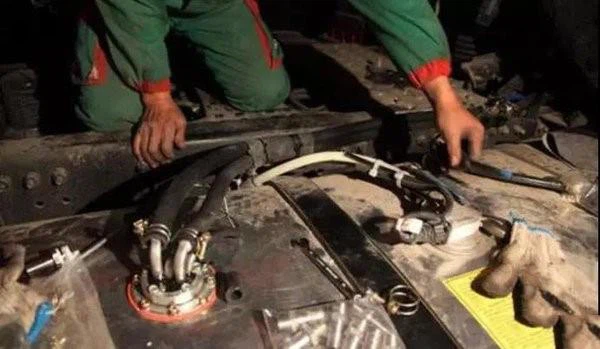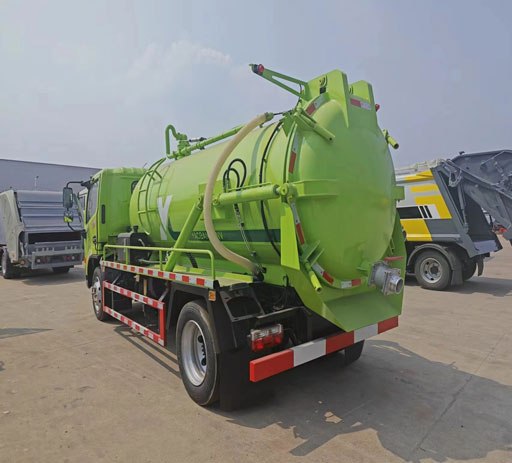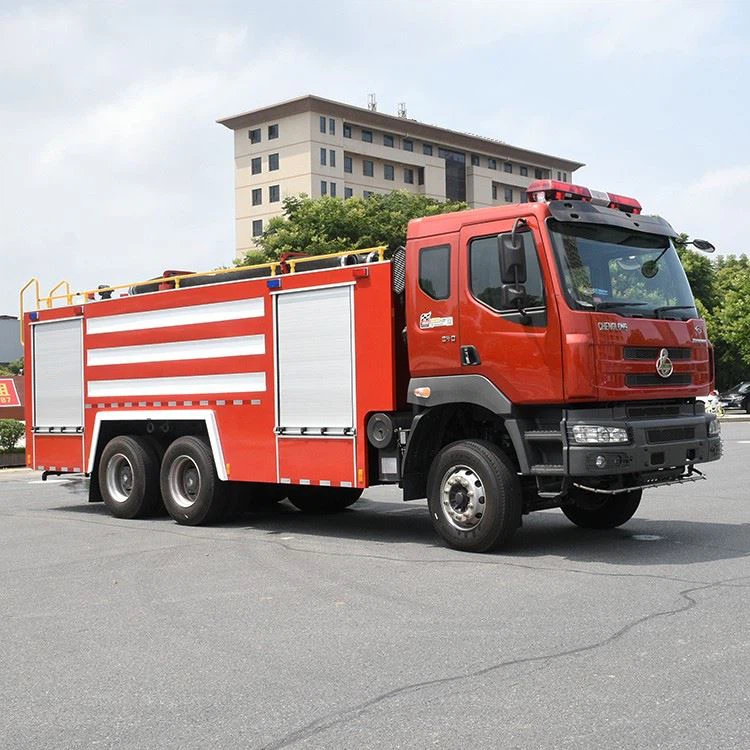Introduction
Vacuum trucks are specialized vehicles designed for the safe and efficient removal of various liquids, sludges, and debris, making them essential in numerous industries. From construction sites and sewage treatment plants to oil refineries and municipalities, vacuum trucks play a critical role in maintaining cleanliness and safety. This article dives into the different types, functions, and benefits of vacuum trucks, providing practical insights and tips for choosing the right one for your needs.
What is a Vacuum Truck?
A vacuum truck is a heavy-duty vehicle equipped with a vacuum pump and a storage tank. These trucks are designed to suction liquids, slurries, and debris from various sites. This process allows for effective waste removal and management, making them invaluable for environmental conservation and site maintenance.
How Does a Vacuum Truck Work?
The operation of a vacuum truck can be broken down into several key components:
- Vacuum Pump: Creates a suction that pulls fluid or debris into the tank.
- Storage Tank: Holds the collected materials until it can be properly disposed of.
- Hoses and Nozzles: Allow for flexible and efficient suctioning of materials from various locations.
- Discharge System: Safely empties the contents of the tank when at a designated dump site.
Types of Vacuum Trucks
Vacuum trucks come in various types, each designed for specific applications:
1. Liquid Vacuum Trucks
Used mostly in liquid waste management, these trucks are ideal for transporting sewage, wastewater, and other liquids.
2. Vacuum Tanker Trucks
These are larger trucks used for transporting bulk liquids and hazardous materials in a safe manner.
3. Hydro Vacuum Trucks
Combining water jetting and vacuuming, hydro vacuum trucks are effective in cleaning pipelines and drains.
4. Industrial Vacuum Trucks
Designed for industrial settings, these trucks effectively collect hazardous materials, sludge, and solids.
5. Septic Tank Trucks
These trucks are specialized for pumping and transporting septic waste from residential and commercial properties.

Key Features of Vacuum Trucks
When considering a vacuum truck, it’s essential to look at several features:
| Feature | Description |
|---|---|
| Suction Power | The strength of the vacuum pump determines the efficiency in removing materials. |
| Tank Capacity | A larger tank allows for more material to be collected at once, reducing trips. |
| Weight Limits | Capacity to carry heavy loads, essential for industrial applications. |
| Material Quality | High-strength materials ensure longevity and resistance to harsh chemicals. |
| Safety Features | Includes emergency shut-off valves and overfill protection mechanisms. |
Applications of Vacuum Trucks
Vacuum trucks have various applications across multiple industries:
1. Environmental Services
Environmental companies utilize vacuum trucks for waste collection and management, ensuring that hazardous materials are safely removed and disposed of.
2. Construction and Excavation
In construction, vacuum trucks are used for removing debris, clearing sites, and maintaining clean work environments.
3. Oil and Gas Industry
Vacuum trucks play a critical role in the oil and gas sector by transporting drilling mud, crude oil, and other materials efficiently and safely.
4. Municipal Services
Local governments use vacuum trucks for street cleaning, stormwater management, and sewer maintenance.
5. Industrial Manufacturing
Manufacturers employ vacuum trucks for collecting hazardous waste and sludge generated during production processes.
Benefits of Using Vacuum Trucks
The use of vacuum trucks offers numerous benefits, including:
1. Enhanced Safety
By safely removing hazardous waste from sites, vacuum trucks help mitigate risks associated with spills and contamination.
2. Efficiency
Vacuum trucks streamline the waste collection process, reducing the time and labor needed for manual clean-up tasks.
3. Environmental Protection
Vacuum trucks are integral to waste management, ensuring that materials are disposed of properly and helping protect the environment.
4. Versatility
With various types designed for different applications, vacuum trucks are equipped to handle a wide range of materials and environments.
Tips for Choosing the Right Vacuum Truck
When looking to acquire a vacuum truck, consider the following tips:
1. Assess Your Needs
Determine the types of materials you will be handling and the typical volume to choose the appropriate capacity.
2. Evaluate Features
Look for trucks with the right suction power and safety features for your specific applications.
3. Test Before Purchase
If possible, test the vacuum truck in a real-world scenario to ensure it meets your expectations.
4. Consider Maintenance
Check the availability of parts and after-sales service for the model you choose to ensure easy maintenance down the road.
Maintenance of Vacuum Trucks
Regular maintenance is crucial for keeping vacuum trucks operating efficiently:
1. Daily Inspections
Check fluid levels, hoses, and connections before each use to ensure everything is in order.
2. Regular Cleaning
Thoroughly clean the tank and components to prevent residue buildup and maintain hygiene.
3. Scheduled Service
Follow a scheduled service regimen to inspect major systems such as vacuum pumps and tanks.
Common Maintenance Tasks
- Inspecting and replacing filters
- Checking the vacuum pump’s oil levels
- Monitoring wear and tear on hoses
Cost Considerations for Vacuum Trucks
The cost of a vacuum truck can vary based on several factors:
1. Type of Vacuum Truck
Different types of trucks come with varying price ranges, from basic septic tanks to advanced hydro vacuum models.
2. Size and Capacity

Larger trucks with higher capacity typically cost more than smaller models.
3. New vs. Used
Deciding between new and used trucks can significantly affect the budget, with used trucks offering cost savings.
4. Features and Customizations
Additional features and customizations can raise the price, so it’s essential to determine what’s necessary.

FAQ
1. What materials can vacuum trucks collect?
Vacuum trucks are designed to collect liquids, sludges, debris, and hazardous materials, depending on the type of truck and equipment used.
2. How often should vacuum trucks be serviced?
Vacuum trucks should undergo regular maintenance checks at least once a month and be inspected daily before use.
3. Are vacuum trucks environmentally friendly?
Yes, vacuum trucks help in proper waste management and disposal, contributing to environmental protection by reducing spills and contamination.
4. Can I rent a vacuum truck instead of buying one?
Many companies offer vacuum trucks for rent, which can be a cost-effective solution for occasional use.
5. What is the average lifespan of a vacuum truck?
The lifespan of a vacuum truck can vary, but with proper maintenance, they typically last between 10 to 15 years.
6. Are there regulations governing the operation of vacuum trucks?
Yes, there are regulations around the operation, maintenance, and waste disposal of vacuum trucks that vary by region and industry.